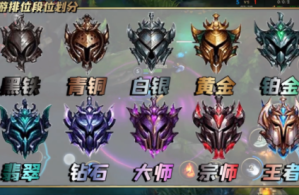游戏时间久了会怎么样英语
- 分享
- 2024-12-23 23:09:18
- 78
As technology and entertainment intersect in a dynamic union, the popularity of video games has skyrocketed in recent years. From the first simple video games to the complex, high-definition games we play today, gaming has become a pivotal part of many people's lives. However, just like any other aspect of life, excessive gaming can have its consequences. In this article, we will explore the effects of playing games for extended periods of time.

**一、游戏时间的初步影响**
In the initial stages of gaming, it is often seen as a form of relaxation and entertainment. Players can escape the realities of life and immerse themselves in a virtual world. This initial phase is often filled with excitement and joy as players explore new environments, complete challenging missions, and build communities with fellow gamers. It's a source of fun and companionship, a valuable asset for both mental and emotional well-being.
**二、逐渐增长的游戏时间与初步改变**
However, as the amount of time spent playing games increases, subtle changes begin to occur. Firstly, there is a noticeable shift in the balance between real life and the virtual world. Players may start to prioritize gaming over other activities, such as socializing with friends, hobbies, or other interests that might contribute to personal development. Additionally, if one indulges in more competitive gaming where late nights are an expected part of a daily routine, sleep patterns and even physical health can suffer.
In terms of physical health, spending long hours in front of a screen can result in eye strain, dry eyes, or headaches. There's also a significant risk of posture issues such as slumped shoulders or neck pain. Sedentary lifestyles often result in unhealthy eating habits that lead to weight gain and poor physical condition. This isn't only harmful to an individual's physical health but can also take a toll on their mental well-being.
**三、长期游戏时间的潜在影响**
Long-term excessive gaming can also lead to a more pronounced lack of social interaction and social skills. It can be detrimental to an individual's communication abilities when they become less accustomed to real-life socializing. It's not uncommon for players to engage in social isolation due to a preoccupation with their digital lives, leading to issues with social cohesion and anxiety in social settings. Moreover, constant interaction with a digital environment can alter an individual's way of thinking and create an imbalance between digital and actual reality.
Additionally, addiction to games has been seen in extreme cases. For some people, the pursuit of victories or progress within games becomes a compelling need that consumes their every waking moment. This type of addiction can be both psychologically and financially devastating as it often leads to unhealthy relationships with family and friends, and may even require professional help to overcome.
**四、应对措施**
Recognizing the potential risks that long-term gameplay may pose is the first step to counteract any potential issues it might bring about. The right approach would be to practice gaming with a sense of balance—seeing it as a recreation that contributes positively to overall health and happiness without ruling out other areas of life entirely. It's essential to set boundaries and prioritize other aspects of life such as work, family, hobbies, and self-care.
In conclusion, while games provide an exciting and enjoyable way to pass time, it's crucial to maintain a healthy balance between real life and the virtual world. By doing so, we can ensure that gaming remains a source of fun and relaxation without causing any long-term negative effects on our lives.
52378游戏网声明:如对以上内容有异议或更好建议,敬请联系我们,我们将尽快回复您,转载请保留原文链接,感谢大家配合!
本文链接:https://www.52378.com/fenxiang/125097.html





















发表评论